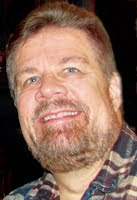“Outen the light,” someone might say to you. It’s perfectly clear upfront that the speaker isn’t from here (unless “here” happens to be Lehigh County, Pennsylvania).
It’s also perfectly clear, with a little thought, that the speaker would like you to flip the light switch to the “off” position (if you’re in Lehigh County, pinch out the kerosene lamp to satisfy your companion).
The ubiquity of television in the last half of the 20th century eradicated the predominance of quaint linguistic idiosyncrasies of regional spoken English.
Wow. You could say it that way. To make the point, perhaps, that one shouldn’t say it that way.
How about: TV showed Americans how people in other parts of the country spoke, virtually wiping out the “Texas Drawl,” for example, and even softening the “Down East” and “Boston Brahmin” dialects.
Once compelled to listen and speak to “foreigners” from other states, Americans homogenized their speaking patterns (to the detriment of Character Authors everywhere, who now are forced to insert illegal immigrants into plot lines to inject diversity in the conversation).
Does a practical lesson lie in the weeds here, somewhere?
Well, novice writers must decide what they want to “sound” like. At first, this is a wholly unconscious decision: Your writing “sounds” like whatever words have hit the page.
But the wise novitiate studies his completed work (if written works ever can be deemed “completed,” for even when published, their interpretation and historical context is constantly emerging and reemerging).
Like a football coach scouting an opponent, the writer should note his tendencies and observe which tactics seem to produce consistent results.
And, like successful coaches, the writer never gets stuck in a rut, calling upon the same tired strategy, even though it’s long been “defensed.” Readers and commercial prospects, after all, quickly learn to throw up “defenses” against the same tired plots, the same tired sales ploys, the same tired anything.
The writer must be flexible, adapting to new situations, new conditions, new opportunities as they present themselves ... like the dentist in an old Pennsylvania Dutch joke:
A young brunette goes in to see the dentist, who is much
A young brunette goes in to see the dentist, who is much
impressed with his young patient's wicked beauty.
"Doctor," she says, "you know I think that I would chust
as soon have a baby as have a tooth pulled."
"Well," replies the good doctor, "Chust let me know, lady,
so I can adchust the chair."
Next: More lessons for the would-be Writer
[For personal writing assistance, go to www.fixadocument.com]

No comments:
Post a Comment